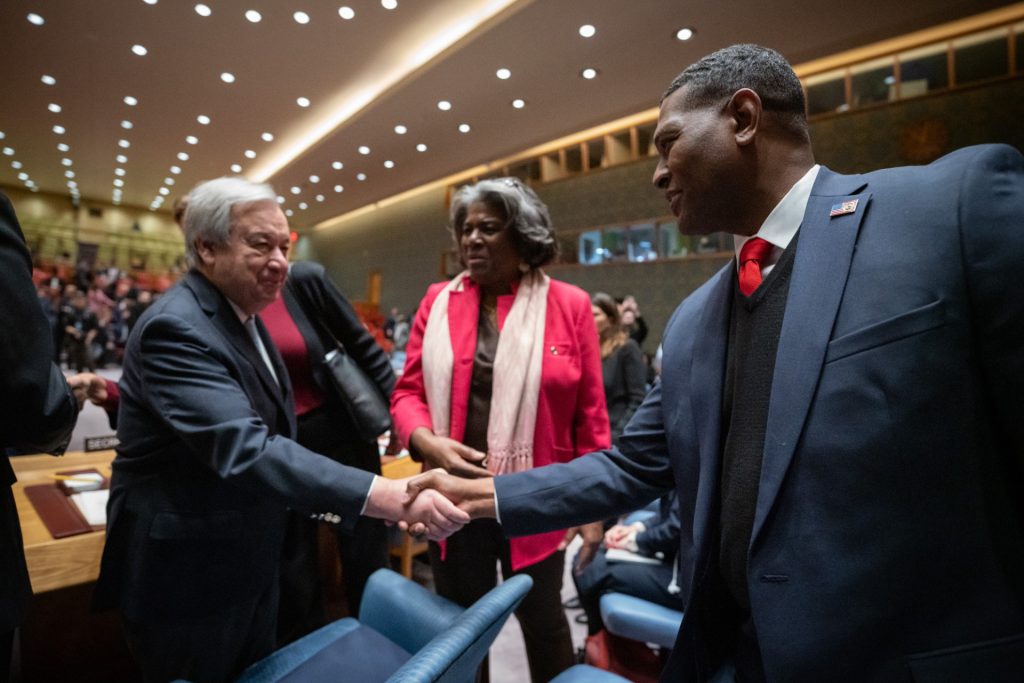US expected to veto Palestinian request for full UN membership.
Others are reading now
This Friday, the United Nations Security Council is scheduled to vote on whether to grant full UN membership to Palestine, as informed by diplomats. But this move is likely to be obstructed by the United States, a staunch ally of Israel, because it would implicitly recognize Palestinian statehood.
A High-Stakes Vote at the Security Council
The vote, set for 3 p.m. (1900 GMT), will address a draft resolution submitted by Algeria, which calls for the admission of the State of Palestine into the United Nations. The resolution requires at least nine votes from the 15-member council and must avoid a veto from any of the permanent members, which include the US, Britain, France, Russia, and China.
Diplomatic sources suggest that the resolution might garner up to 13 votes in favor, potentially forcing the US to exercise its veto power.
The timing of the vote was strategically chosen to align with a Security Council meeting on the Middle East, expected to include various ministers.
Also read
US Position on Palestinian Statehood
The US has consistently advocated that Palestinian statehood should be achieved through direct negotiations between Israel and the Palestinians, rather than through unilateral actions at the UN.
“We do not see that doing a resolution in the Security Council will necessarily get us to a place where we can find… a two-state solution moving forward,” stated US Ambassador to the UN, Linda Thomas-Greenfield.
Currently, Palestine holds the status of a non-member observer state at the UN, a recognition that was granted by the General Assembly in 2012. To achieve full membership, Palestine requires approval from both the Security Council and a two-thirds majority in the 193-member General Assembly.
This bid for full membership comes at a tense time.
The Palestinian Authority, which governs parts of the West Bank and is seen as a partner to the Oslo Accords, contrasts sharply with Hamas, which has controlled Gaza since 2007.
Israel’s UN Ambassador, Gilad Erdan, has criticized the Security Council’s consideration of the proposal, stating, “If the Security Council decides to recommend full membership for the Palestinian Authority, which incites and finances terrorism and has no control over its territory, it will lose all legitimacy.”
Implications of the Vote
The outcome of this vote is more than a procedural matter; it is deeply symbolic of the international community’s stance on Israeli-Palestinian relations and the broader Middle Eastern conflict.
With the US likely to veto the bid, the prospects for any immediate change in Palestine’s status seem slim.


